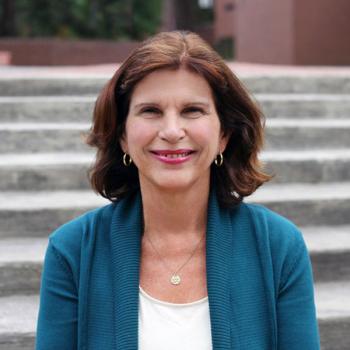The sooner that Jim Wallis can get around to saying who he is, and quit dodging the question, the sooner we can get on to a robust conversation about what policies lead to Shalom in the world.
You came to Washington as a follower of Sojourners and Jim Wallis. What changed?
In college, I had handed out Sojourners magazines. They sent me fifty at a time and I gave them out. Then I came to Washington and immediately went to work with Chuck Colson and his prison ministry. I introduced Chuck and Jim Wallis for the first time. They met each other, and we went down to a Sojourners worship service.
What changed? Well, Irving Kristol says that a neoconservative is a liberal who has been mugged by reality. That was quite literally true for me. I was actually bound and gagged in a hotel room at midnight. They hit the wrong guy. I was living a simple Christian lifestyle; they took my watch and my vitamins and my $33. It's a funny story now, but at the time it wasn't funny at all. I could have been shot, but they just left me bound and gagged.
An experience like that has a very profound effect on your reading habits. When you've been mugged and bound, you begin to read James Q. Wilson and other people on theories of crime and punishment in a different way. You begin to realize that there are very real people out there who mean harm and need to be restrained by the state.
The second transformative moment was hearing several lectures on Solzhenitsyn and the gulags and realizing that 60 million people had died in them. As a member of the evangelical Left, I had believed that America was the Great Satan. I had to learn about the nature of truly totalitarian regimes, their expansionist tendencies, and what they had done to their own people.
The third transformative moment was reading the literature on welfare reform and social policy, and realizing that the billions of dollars that had been spent with the best of intentions had actually made matters worse in domestic policy. The Great Society programs that Johnson had put in place had demonstrably and empirically created more harm than good.
It was quite a journey. I had grown up in a Democratic household; my mother was state vice-chairman of the Democratic Party. But I moved from a liberal to a neo-liberal to a neo-conservative, based on looking at those empirical realities. My mother was exasperated with me. She was a liberal Democrat all her life, and a year before she died, she said, "I don't know what happened to you." I told her: "Mom, I became a conservative for liberal reasons." The "liberal reasons" being that we mustn't make matters worse for people by creating a dependent underclass and by encouraging irresponsibility. We ought not to become libertarians, but we ought to have a more limited view of how the government does these things.
There has been recently a call to "civility." What would a specifically evangelical form of dialogue look like? What virtues would it honor?
It would always recognize that our disagreements and arguments are about policies and not about people. At the end of the day, what defines us the most is our identity in Christ, not our political identities. People on the Right and on the Left forget this.
In the late ‘80s, when Reagan was in office, a statement came out by liberation theologians called "The Road to Damascus." It was a theological statement that anyone who supported Reagan's war in Central America was not Christian. That kind of politicization of the gospel is wrong. It's also wrong when people on the Right say to me, "I don't think So-and-So could be a Christian because I don't agree with their public policies."
That's appallingly heretical. Our identity is rooted in our doctrinal commitments, not our prudential judgments.
A person can be a Christian and be politically confused, but that doesn't make him any less Christian. Realizing that at the beginning should soften the edge of our conversations. The more we can decouple the policies from the people, the better. If you come with that posture, then you ought to be able to be civil toward your opponent because you realize that person is made in the image of God, possesses the imago Dei, and ought to be treated with civility and dignity no matter what he or she thinks.
The need for civility is more urgent now than ever. Christian charity and civility should always be that hallmark of our conversation, especially in our political disputes.
You occupy a mediating space. What would you want your friends on the Left to understand about the Tea Parties, and what would you want those on the Right to understand about the Obama administration?
I want my friends on the Right to understand that the people in the Obama administration have, in general, extremely good intentions. They just have a different view about what public justice is and how we ought to arrange our life together politically and legally. Except in the most extreme cases, one should never call into question the fact that these people are well intended.





